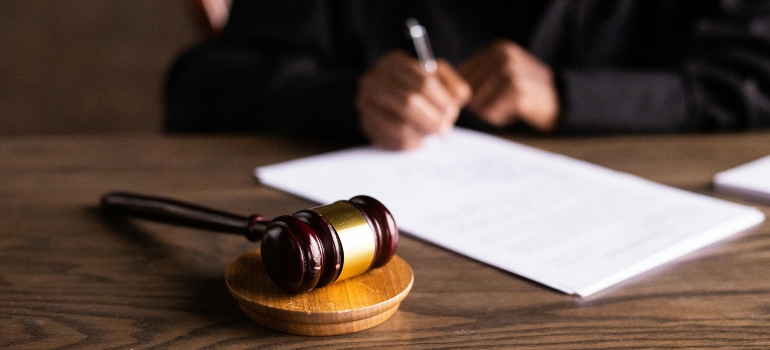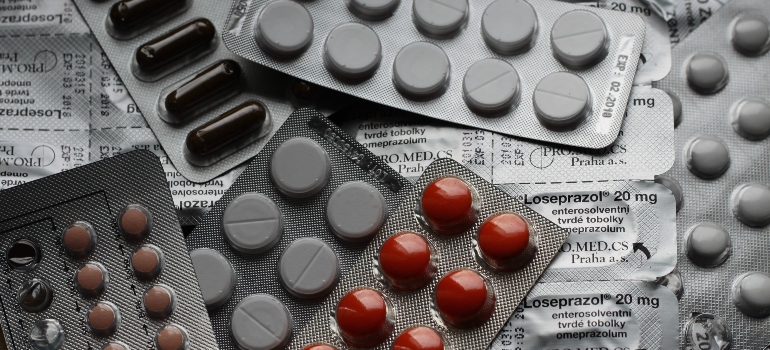When it comes to drug policies, the terms “decriminalization” and “legalization” are frequently tossed around, leaving many of us scratching our heads in confusion. What’s the difference, and why does it matter? Harmony Ridge will help you understand the world of drug reform in plain and simple terms. So, join us as we explain the decriminalization vs legalization of drugs and how it affects drug addiction.
Decriminalization vs Legalization of Drugs – What’s the Difference?
Decriminalization and legalization may sound similar, but they represent distinct approaches to handling drug-related issues. Firstly, decriminalization involves removing criminal penalties for the possession of small amounts of drugs, treating it more as a civil offense. Picture it like a parking ticket – still frowned upon, but not a one-way ticket to the legal system.

On the other hand, when we talk about legalization, it goes beyond just not treating something as a crime. It’s officially allowing making, selling, and using certain drugs. It’s kind of like how we regulate alcohol consumption and tobacco. So, while decriminalization is a bit more laid-back, legalization means fully accepting and managing activities related to drugs.
Impacts of Legalization and Decriminalization of Drugs on Society
Decriminalization changes the way we deal with drug use. Instead of punishing people, it’s more about helping them get better. It treats having a small amount of drugs as a civil problem, not a criminal one. The idea is to ease the load on the legal system so it can focus on more important things. This approach wants to reduce harm by guiding people toward treatment and education instead of sending them to jail. However, some people worry that decriminalization might not fix the main problems and could still keep an illegal drug market going.
On the other hand, legalization brings a whole new set of considerations to the table. It means the government can control the making and selling of drugs, making money, and making sure people use them more safely. It also helps fight the bad side of drug dealing. But, there are worries about more people getting their hands on drugs, using them too much, and how it might affect everyone. Finding the right balance between letting people do what they want and keeping everyone safe can be tricky. There is a discussion about how old you should be to use drugs, rules about ads, and what the government should do.
Case Studies
Several real-world examples shed light on the outcomes of decriminalization and legalization policies. Portugal is a pioneer when it comes to the decriminalization of drugs, having shifted its approach in 2001. There, the possession of small amounts of drugs for personal use is considered an administrative offense rather than a criminal one. Over the years, Portugal has seen a decline in drug-related deaths, HIV transmission rates, and problematic drug use.
Moving into the realm of legalization, Uruguay took a groundbreaking step in 2013 by becoming the first country to fully legalize the production, sale, and consumption of marijuana. The goal was to undermine the illegal market, promote public health, and enhance government control. While it’s still early to draw definitive conclusions, initial reports suggest a reduction in the black market.

Closer to home, certain U.S. states have embraced varying degrees of drug reform. For instance, Colorado and Washington legalized recreational marijuana in 2012, with other states following suit. These experiments have generated considerable tax revenue, reduced arrests for marijuana offenses, and sparked a broader conversation about the potential benefits and drawbacks of drug legalization.
Addiction Concerns
Addressing addiction concerns is a critical aspect of the ongoing debate around drug policies. Addiction is a complex issue that requires thoughtful consideration when implementing changes in drug laws. On the one hand, decriminalization may offer an opportunity to view substance abuse through a public health lens, emphasizing treatment and rehabilitation over punishment. By reducing the fear of legal consequences, individuals struggling with addiction might be more likely to seek help without the stigma of criminalization.
In West Virginia, a state significantly impacted by the opioid crisis, addiction concerns are particularly pronounced. Rehab centers in West Virginia are really important for responding to changes in drug policies. With decriminalization or legalization, these centers could potentially experience changes in their approach, focusing more on harm reduction strategies and medical interventions rather than solely relying on punishment.
Rehab centers may adapt to changes in drug policies by expanding their services to align with a more comprehensive public health model. This might involve increasing outreach efforts, destigmatizing addiction, and offering a range of treatment options such as:
- Counseling for addiction
- Medication-assisted Treatment
- Support Groups
- Family Therapy
- Holistic Treatment
Moreover, the increased emphasis on prevention and education can help address the root causes of addiction and minimize its impact on individuals and communities.
Specific Drug Focus
The addiction potential of different substances varies widely. Knowing these differences is important to make sure addiction treatments work well for each person.
Legal substances such as benzodiazepines can cause addiction. They are often prescribed for anxiety and insomnia but can lead to physical and psychological dependence if misused. Also, if you stop using them suddenly, it can result in withdrawal symptoms, emphasizing the need for supervised tapering and comprehensive support during benzodiazepine addiction treatment.

Furthermore, fentanyl is highly addictive. This potent synthetic opioid poses a significant risk due to its potency and rapid onset. The opioid crisis has highlighted the urgency of specialized interventions, including medication-assisted treatment and counseling, to address fentanyl addiction.
Substances like stimulants are frequently prescribed for legitimate medical reasons, such as attention deficit hyperactivity disorder (ADHD) or narcolepsy. While many doctors prescribe stimulants, the therapeutic use of these medications can lead to misuse and, in some cases, addiction. Therefore, when doctors prescribe stimulants, it’s important for them to do it carefully to reduce the chance of addiction.
In addition to these substances, the need for specialized treatments like Ambien addiction treatment shows that addiction comes in all sorts of forms. Ambien, a sedative-hypnotic medication prescribed for insomnia, can be habit-forming if not taken as directed. Those struggling with Ambien addiction may benefit from tailored interventions, including detoxification, counseling, and behavioral therapies aimed at addressing the underlying issues contributing to the misuse of the medication.
Legal vs Illegal Substances
Talking about drug rules, addiction, and special treatments shows how complicated substance problems can be. When we look at decriminalization vs legalization of drugs, it becomes evident that both legal and illegal substances can cause addiction, each presenting its unique set of challenges. This necessitates a comprehensive approach that spans responsible prescribing practices, accessible rehabilitation programs, and a change in how society thinks about addiction—seeing it more as a health issue than a moral problem. As we continue to grapple with the complexities of drug policies and their impact on addiction, we should keep talking, make treatments better, and focus on stopping problems before they happen.



